
Graham Thomas Parker is an English singer-songwriter, who is best known as the lead singer of the British band Graham Parker & the Rumour.
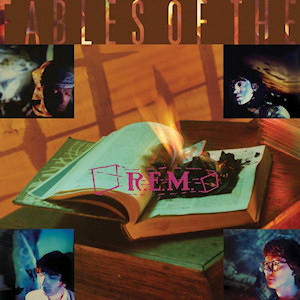
Fables of the Reconstruction is the third studio album by American alternative rock band R.E.M. It was released on June 10, 1985, through I.R.S. Records. It was the band's first album recorded outside of the U.S., with sessions taking place at Livingston Studios in London with producer Joe Boyd. The record displays a darker, murkier sound and lyrics drawing from Southern Gothic themes and characters. Additionally, more varied instrumentation is utilized, including string and brass arrangements and banjo.
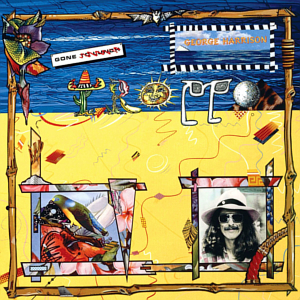
Gone Troppo is the tenth studio album by the English rock musician George Harrison, released on 5 November 1982 by Dark Horse Records. It includes "Wake Up My Love", issued as a single, and "Dream Away", which was the theme song for the 1981 HandMade Films production Time Bandits. Harrison produced the album with Ray Cooper and former Beatles engineer Phil McDonald.

Anticipation is the second studio album by American singer-songwriter Carly Simon, released by Elektra Records, in November 1971.
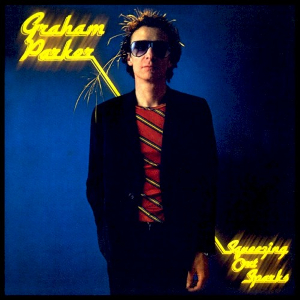
Squeezing Out Sparks is the fourth studio album by English singer-songwriter Graham Parker and his band the Rumour. The album was released in March 1979. Although the Rumour were not credited on the cover, their name was included on the album label.
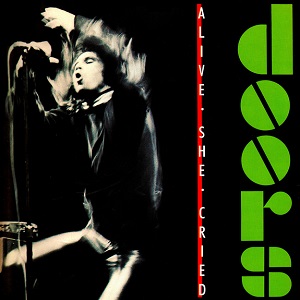
Alive, She Cried is the second official live album by the American rock band the Doors, released in October 1983 by Elektra Records. It is the follow-up to the 1970's Absolutely Live, produced by Paul A. Rothchild. The album's title was taken from a line in the song "When the Music's Over".

Home Again is the 15th studio album by American singer-songwriter Judy Collins, released in 1984 by Elektra Records.
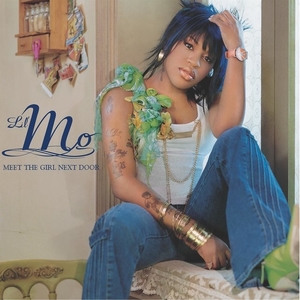
Meet the Girl Next Door is the second studio album by American singer Lil' Mo. It was released on April 29, 2003 by Elektra Records. Written and recorded during her eighth-month pregnancy break in which she became a part-time anchor for Baltimore urban radio station WXYV-FM's The Lil' Mo Show, Lil' Mo worked with a variety of producers on the album, including Missy Elliott, Walter "Lil' Walt" Millsap III, Chucky Thompson, Bryan-Michael Cox, Craig Love, Warryn Campbell, Dwayne Bastiany, and Precision. Guest vocalists on Meet the Girl Next Door include rappers Fabolous, Free, and Lil' Kim.

"The Pretender" is a song written and performed by American rock performer Jackson Browne and featured on his 1976 album The Pretender.

Steady Nerves is a 1985 album by Graham Parker and the Shot.
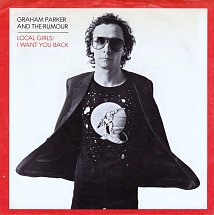
"Local Girls" is a song by British rock musician Graham Parker, recorded with his backing band the Rumour. The song was released on his 1979 album, Squeezing Out Sparks.
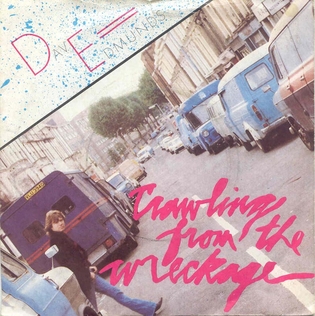
"Crawling from the Wreckage" is a new wave song written by Graham Parker and first released by Dave Edmunds in 1979. Parker, who was unsatisfied with the song, contributed the song to Edmunds, included it on his album Repeat When Necessary. Edmunds' version peaked at number 59 on the UK Singles Chart.

"Mercury Poisoning" is a song written by rock musician Graham Parker and performed by Graham Parker and the Rumour. Inspired by Parker's frustration with his record company, Mercury Records, the song was released as a promotional single by Parker's new label, Arista Records, in February 1979. Because of the song's controversial nature, it was pulled from its planned release as the B-side to Parker's 1979 single, "Protection."
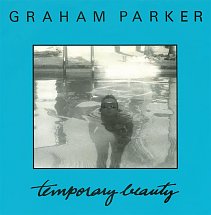
"Temporary Beauty" is a song by British rock musician Graham Parker. The song was released on his 1982 album, Another Grey Area. With lyrics described by Parker as "put-downs", "Temporary Beauty" is a rock song with vocals that Parker noted as an example of his better singing compared to previous albums.

"You Can't Be Too Strong" is a song by British rock musician Graham Parker, recorded with his backing band the Rumour. The song was released on his 1979 album, Squeezing Out Sparks. Written about abortion, the song originated as a country-style shuffle before Parker and producer Jack Nitzsche changed it to a slower acoustic ballad.
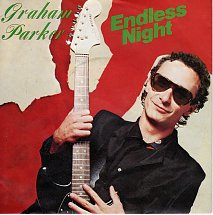
"Endless Night" is a song written by rock musician Graham Parker and performed by Graham Parker and the Rumour for their 1980 studio album The Up Escalator. Originally written for the 1980 film Cruising, "Endless Night" features lyrics about aging in rock 'n' roll. The song notably featured backing vocals from musician and Parker fan Bruce Springsteen.
"Passion Is No Ordinary Word" is a song by British rock musician Graham Parker, recorded with his backing band the Rumour. The song was released on his 1979 album, Squeezing Out Sparks. Written about faking one's emotion, the song features a stripped-down arrangement.

"Stick to Me" is a song by British rock musician Graham Parker, recorded with his backing band the Rumour. The song was released on his 1977 album, Stick to Me. Inspired by "Tickets to Water Falls" by Jack Bruce, the song features a string arrangement that Parker sought to "use with power".
"Saturday Nite Is Dead" is a song by British rock musician Graham Parker, recorded with his backing band the Rumour. The song was released on his 1979 album, Squeezing Out Sparks. Written about his experiences growing up in suburbia, the song features caustic lyrics and an angry vocal delivery.

"Stupefaction" is a song written by rock musician Graham Parker and performed by Graham Parker and the Rumour for their 1980 studio album The Up Escalator. Inspired by Parker's time spent in Los Angeles, the song features sardonic lyrics that were based on an observation by Parker and his manager in the city.


















